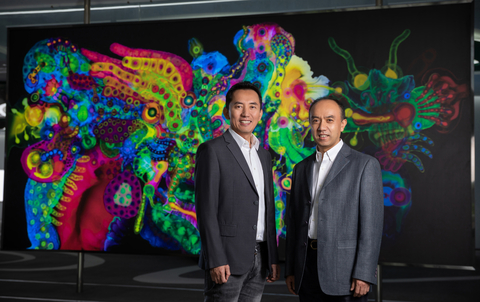
BOSTON– ByteDance has pitched into life sciences. Last October, this internet tech giant invested in the biotech startup Shuimu BioSciences (Shuimu), a company leveraging the power of cryogenic electron microscopy (cryo-EM) and AI to revolutionize drug discovery.
Since the outbreak of the coronavirus, life sciences has become one of the most promising sectors to venture in. Tech giants are certainly not left behind. Google is betting big on Calico and DeepMind. Amazon ventured into Altos Lab. Elon Musk has been pouring huge capital over Neuralink.
Recently, the rapid advancements in cryo-EM, a Nobel-winning technology, gave birth to an entirely new species of biotech startups such as Gandeeva Therapeutics, Septerna, and MOMA. The technology provides high-resolution structural information of biological molecules under in vitro conditions. It can visualize the atomic-resolution structure of protein-drug complexes to enable scientists to turn previously undruggable targets into druggable targets. A huge potential in precision therapeutics is sparkling due to the development of cryo-EM.
Shuimu partnered with Thermo Fisher in 2019 to build the first commercial cryo-EM facility in the Asia Pacific with two Titan Krios. It has quickly become the largest in the world as it is expanding its capacity to eight 300kV cryo-EMs this year.
Shuimu’s novel drug discovery platform takes advantage of its high-throughput cryo-EM facility and AI. It applies artificial intelligence and deep learning algorithms to automate data collection and model building workflow. An atomic model can be built in only one or two days, instead of two weeks. Shuimu is accelerating drug discovery with its enormous data set of biological structures, including structures of proteins, antibodies, nucleic acid, and other compounds.
Shuimu is led by Dr. Hongwei Wang and Allen Chunlong Guo. As one of the top cryo-EM methodologists, Dr. Wang has contributed many technological innovations to this field. His team once achieved the structure reconstruction of 52 kDa streptavidin at near-atomic resolution, breaking the world record of the smallest proteins solved by cryo-EM (published in the journal Nature Communications).
In another article published in the journal Nature last month, Dr. Wang and his collaborators, using sophisticated cryo-EM technology, reveal the molecular mechanism for the full cycle of ATP-dependent double-stranded RNA processing by Dicer-2-Loqs-PD complex. This structural insight into RNA biology may help find new targets for drug discovery.
“In the future, all drug development will take advantage of cryo-EM and AI,” said Allen Guo, CoFounder, and CEO at Shuimu.

